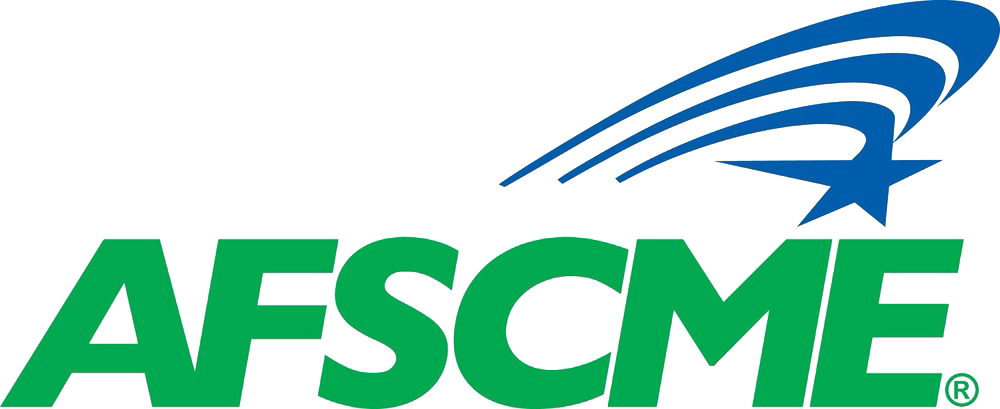Return to WFSE Votes landing page
It’s simple. We can't afford to repeal the Climate Commitment Act (CCA). Our jobs, clean air, and clean water are on the line. This November, vote no on the repeal of I-2117.
If Initiative 2117 passes, it would repeal the CCA and take billions from the state budget. This would put extra strain on the general fund, which is used to pay for our jobs and raises.
Shifting the cost of toxic pollution back onto workers, families, and communities, the domino effect from the CCA’s loss would extend to everything from worsening traffic to losing programs that help low-income families pay their utility bills to much needed renovations for aging state facilities —all so that our state’s largest polluters don’t have to pay their fair share.
What is the Climate Commitment Act?
 “The Climate Commitment Act is so much more than just reducing our greenhouse gas emissions.
“The Climate Commitment Act is so much more than just reducing our greenhouse gas emissions.
We need to reduce greenhouse gas emissions all across the planet, and this law allows us to be a leader, nationwide and worldwide. But it's also funding so many different investments to protect our forests, protect our water, protect human health, and to give people the tools that they need to protect themselves.
All of that is going to be stripped away. We would be taking many steps backwards in our ability to protect people, and it's going to cost people's lives and livelihoods. It would really deteriorate our quality of life.”
— Felipe Flores, WFSE Local 443 Member, Dept. of Health
The Climate Commitment Act (CCA) sets a limit on greenhouse gas emissions from Washington’s biggest polluters and industries. It encourages businesses to find the best way to reduce their carbon emissions and aims to reduce Washington's greenhouse gas emissions by 95% by 2050.
Our state is committed to protecting the climate and our future, and the CCA helps fund this effort. Without the CCA, we will still need to reduce emissions, but there won't be enough money to make it happen.
Consequences: Our Jobs, Our Contracts
“The push to repeal the CCA is being bankrolled by an extreme, right-wing donor who moved to our state to avoid taxes on his hedge fund; he’s ‘Tim Eyman with a gigantic bank account,’ as the Seattle Times put it.” — No on I-2117 Campaign
Scrapping the CCA would mean losing billions from the transportation budget, which puts our members’ jobs at risk in departments like Transportation, Commerce, Health, and Ecology.
But the effects could spread far beyond public jobs currently funded by the CCA. Without it, we may have to use our general budget to pay for transportation and anti-pollution projects—the same budget that funds all WFSE members’ jobs and raises.
We know from past negotiations that budget problems are often used as an excuse to deny public workers the raises they need. Losing the CCA would put even more pressure on the general fund and make it harder to get the raises our members need to keep up with inflation.
Impact on our Department of Transportation Members

Right now, the CCA makes polluters pay for important projects that protect our environment, like electric vehicle infrastructure and hybrid/electric ferries. We set aside money for these projects, and if we lose the CCA, that money has to come from somewhere.
Unfortunately, that might mean cutting our jobs. This will almost certainly lead to layoffs at the Department of Transportation, sheds getting closed down, and reduced capacity for tasks like maintaining rest areas. It won’t be the hybrid ferries that get axed, it’ll be our members’ work.

“The Climate Commitment Act gives us the ability to bring in money from polluters and then allocate it to people who are being impacted by the pollution. Losing the Climate Commitment Act would have a big effect on not only those of us at Department of Ecology, but on everybody who's looking to get a reasonable salary package out of our bargaining conditions. That's just going to be a big chunk out of [the general fund]. I think that will create problems for us.” — Llyn Doremus, WFSE Local 872 Member, Dept. of Ecology
Shifting the burden of pollution onto communities and families
Instead of asking polluting companies in Washington to pay their fair share and help to ensure a healthy, prosperous shared future, I-2117 guts funding for community priorities in every county in the state.
What does that mean for working people?
Worse air quality could lead to more children and adults developing asthma in our state.
Without spending on forest health, land management, and wildfire prevention, communities will face more devastating and costly wildfires.
If transit services, road maintenance, and ferries are at risk, we can expect traffic to get worse.
Grants that have helped farmers and ranchers might be cut.
Rolling back protections for our air, water, forests, and farmland means future generations won’t have the natural resources we enjoy today.
"We need the Climate Commitment Act to meet our state's goals to significantly reduce carbon emissions in the coming decades. The CCA benefits all Washingtonians by placing the burden for reducing emissions on our state's biggest polluters and investing in tangible benefits for everyday Washingtonians like transit improvements and climate resilience projects across the state." — Britta Voss, WFSE Local 872 Member, Dept. of Ecology Headquarters
Public employees make our state great. Our work, our voices, and our advocacy helped pass the Climate Commitment Act—now let’s use them to defend our jobs and our state’s future.

